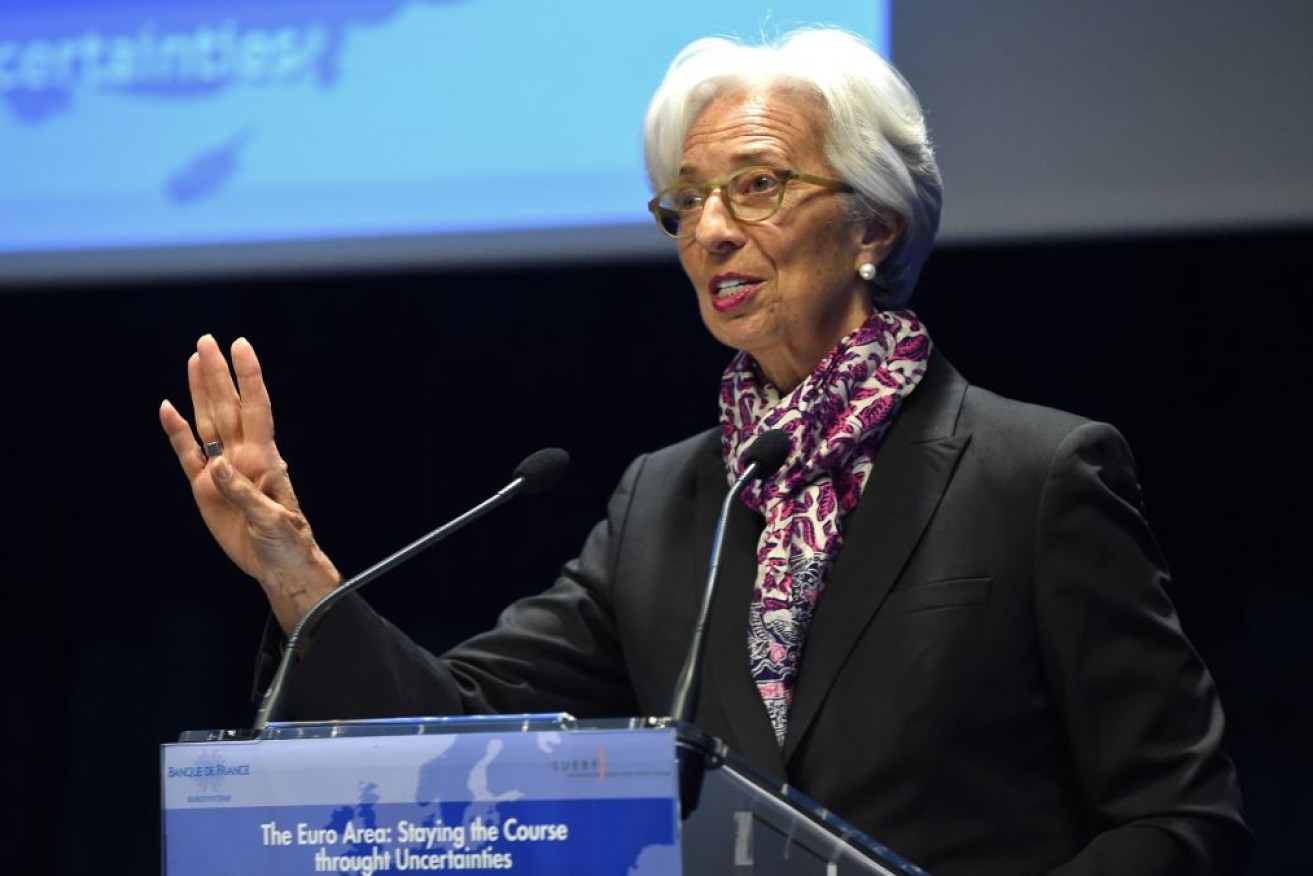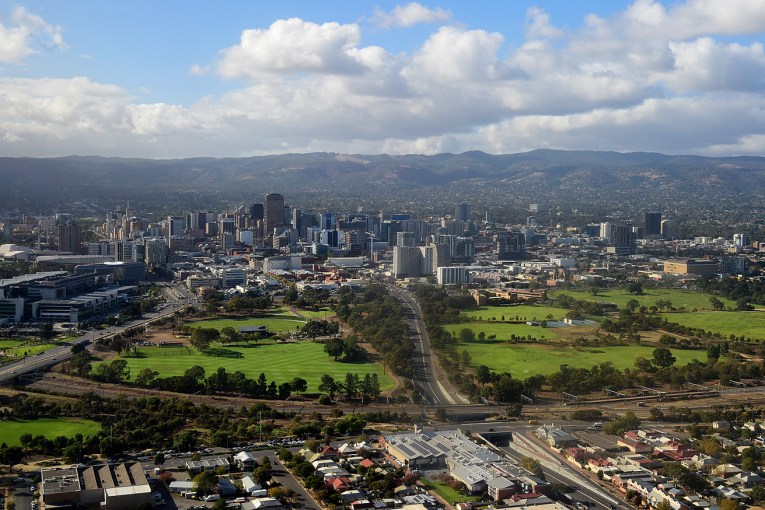Dark economic clouds fuel prospect of rate cuts in 2019


Christine Lagarde, managing director of the IMF, which has downgraded Australia's economic growth for 2019. Photo: Getty
The world economy is looking grim in 2019, but Australia’s is looking even grimmer.
That’s the sobering outlook of the International Monetary Fund’s (IMF) World Economic Outlook, which has predicted not only a widespread global slowdown, but for Australia’s economic growth to slip to 2.1 per cent in 2019 – well below the 2.8 per cent the IMF had forecast in October.
But the dark cloud may have a silver lining for home owners, with the forecast strengthening the case for the Reserve Bank to cut interest rates this year – probably twice.
The gloomy prediction from the IMF means that Australia’s economic growth will slow at twice the rate of most other developed nations in 2019.
Crucially, the 2.1 per cent figure is also well below the 2.75 per cent predicted in last week’s budget by the federal government for the 2019-20 and 2020-21 financial years, which underpins many assumptions about government revenue in coming years.
And once again, the nation’s slumping property market has emerged as a major factor in the downgrade.
The IMF’s lead economist for Australia, Thomas Helbling, told The Australian Financial Review this week that the property downturn had turned out to be worse than expected, and that was weighing heavily on the economy.
The assessments come in the same week that a report by Moody’s Analytics predicted that property values would fall by more than expected in 2019, with Melbourne’s median house price expected to drop by more than 11 per cent.
AMP chief economist Shane Oliver told The New Daily the report confirmed his view that Australians can look forward to two tax cuts in 2019, and that much now hinged on those cuts, the promised income-tax breaks and the effect of infrastructure spending, to bolster the economy.
The combination of falling residential building approvals and tumbling property prices was a potentially risky cocktail for the economy, meaning possibly higher unemployment adding to falling consumer confidence, already fuelled by people’s property values crumbling – also known as the ‘wealth effect’.
Last week’s budget papers also noted: “Residential building approvals had fallen by almost 40 per cent relative to late 2017, with the fall concentrated in higher-density projects.”
Mr Oliver said: “If housing construction slows down [further] that means less activity and fewer jobs. Then you have the indirect effect of of falling property prices which has a negative impact on the wealth effect, which causes people to save more and spend less.”
While the government has forecast unemployment to hover around 5 per cent, Mr Oliver believes – given the weaker economic outlook – that unemployment will actually peak about 5.5 per cent late this year or early next year.
But Mr Oliver said there were also some positive signs in the global economy such as building data from the US, key business surveys in China and the US and more buoyant retail sales.
The IMF also noted that “after the weak start [to 2019], growth is projected to pick up in the second half”.
Mr Oliver tweeted that the IMF report was repeating much of what we already knew – that global economies had started to slow last year and that “we r still in a constrained grth/low rate world”.
IMF global grth forecast for 2019 cut to 3.3% (from 3.5%) driven mainly by advanced countries.
IMF still playing catchup to last yrs slowdown..just old news.
But the return to a downgrade cycle seen in much of post GFC highlights we r still in a constrained grth/low rate world pic.twitter.com/SjWANBM8u1— Shane Oliver (@ShaneOliverAMP) April 9, 2019
In a statement, Treasurer Josh Frydenberg acknowledged the IMF report, noting the budget already had an economic growth forecast of 2.25 per cent for this year.
Mr Frydenberg said “the fundamentals of the Australian economy are sound, but we cannot be complacent”, repeating the government mantra of job creation, tax breaks and a surplus in 2019-20.
But Professor Tony Makin from Griffith University said if the IMF’s numbers were right, they implied that the projected 2019-20 budget surplus ($7.1 billion) “could also easily evaporate on the back of lower revenue than forecast in last week’s budget”.
Professor Makin said the slowdown mainly reflected weaker growth in advanced economies, especially the US, Europe (Germany, France, Italy and the United Kingdom) and Japan, as well as trade tensions between China and the US that have contributed to significantly lower growth in China – Australia’s major trading partner.








